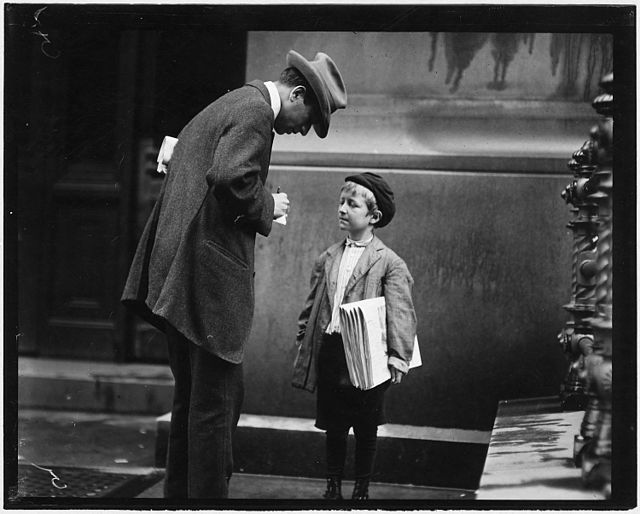The Equal Pay Act of 1963 is a United States labor law amending the Fair Labor Standards Act, aimed at abolishing wage disparity based on sex. It was signed into law on June 10, 1963, by John F. Kennedy as part of his New Frontier Program. In passing the bill, Congress stated that sex discrimination:depresses wages and living standards for employees necessary for their health and efficiency;
prevents the maximum utilization of the available labor resources;
tends to cause labor disputes, thereby burdening, affecting, and obstructing commerce;
burdens commerce and the free flow of goods in commerce; and
constitutes an unfair method of competition.
American Association of University Women members with President John F. Kennedy as he signs the Equal Pay Act into law
Department of Labor equal pay infographic created for the 50th anniversary of the legislation
United States labor law sets the rights and duties for employees, labor unions, and employers in the US. Labor law's basic aim is to remedy the "inequality of bargaining power" between employees and employers, especially employers "organized in the corporate or other forms of ownership association". Over the 20th century, federal law created minimum social and economic rights, and encouraged state laws to go beyond the minimum to favor employees. The Fair Labor Standards Act of 1938 requires a federal minimum wage, currently $7.25 but higher in 29 states and D.C., and discourages working weeks over 40 hours through time-and-a-half overtime pay. There are no federal laws, and few state laws, requiring paid holidays or paid family leave. The Family and Medical Leave Act of 1993 creates a limited right to 12 weeks of unpaid leave in larger employers. There is no automatic right to an occupational pension beyond federally guaranteed Social Security, but the Employee Retirement Income Security Act of 1974 requires standards of prudent management and good governance if employers agree to provide pensions, health plans or other benefits. The Occupational Safety and Health Act of 1970 requires employees have a safe system of work.

Eleanor Roosevelt believed the Universal Declaration of Human Rights of 1948 "may well become the international Magna Carta of all". Based on the President's call for a Second Bill of Rights in 1944, articles 22–24 elevated rights to "social security", "just and favourable conditions of work", and the "right to rest and leisure" to be as important as the "right to own property".
"Newsboys" in L.A. were held in the leading case, NLRB v. Hearst Publications, Inc., to be employees with labor rights, not independent contractors, on account of their unequal bargaining power.
In September 2015, the California Labor and Workforce Development Agency held that Uber drivers are controlled and sanctioned by the company and are therefore not self-employed.
Employment contracts are subject to minimum rights in state and federal statute, and those created by collective agreements.






